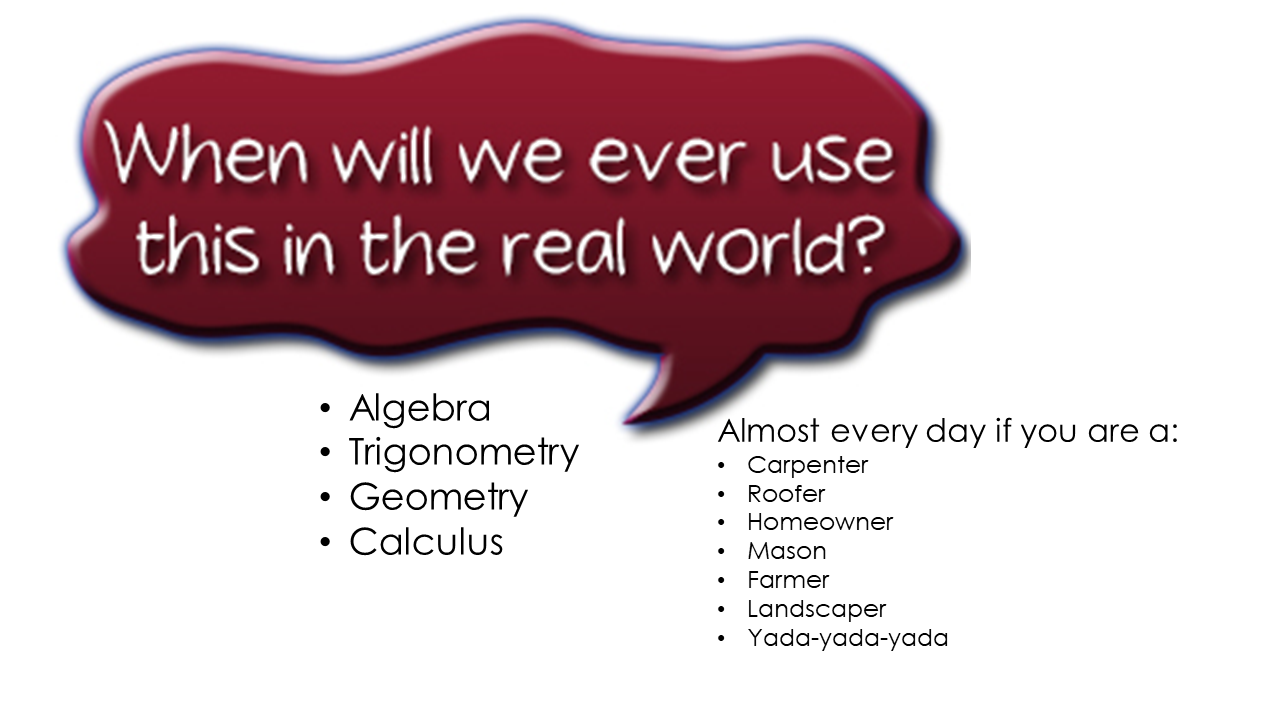
Practical (Real World) Math is NOT Hard
Your world is built upon practical mathematics. Do not fear it, embrace it and you will be more comfortable with everyday life.
Major Topics
- Instructor
Nick Cinquegranna (yes, the same guy that teaches "cooking") when not cooking or farming, has been a "Professional Engineer" in the disciplines of Electronics Engineering, Electrical Engineering, Computer Sciences, and Mechanical Engineering since 1979 (yep... he's "that old") and did a LOT of research (while in the US Navy) in the field of nonlinear acoustics. And get this... he HATES math. Face it, the "theory" behind most math is about as entertaining as watching grass grow.
- How NOT Why
Traditional math teachers focus on why the math works. Frankly, WHO CARES? You do not need to understand the math and physics behind why hitting a nail with a hammer makes it go into the 2X4. You need to know HOW to figure how many acres of an irregularly shaped field need fertilizer, not WHY the method works.
- Math for Agriculture
- Math for the Building Trades
- Math for Homeowners
- Format
A YouTube private video.
It is possible, in fact common, for a young person these days to graduate from high school with little more than basic arithmetic in her/his basket of skills. This places these people at a serious disadvantage in dealing with life. When a person is dependent upon others (like the people selling them something) to make decisions for them they will be cheated. Being able to figure out things on ones own will save a person tens of thousands of dollars over their adult lifetime. Many people that didn't finish school also find themselves at the mercy of others that "know what they're doing" and again, they'll be cheated, or at the very least, convinced to spend more money than necessary for things they need.
How many square yards of carpet do you need? Is a new neighbors fence encroaching on your property? You farm irregularly shaped fields, how many acres are really being cultivated? How many squares of shingles do you need to reroof your home. How high off the ground should you set a sprayer to get 100% coverage without overlap? How much seed do you need to buy to get 34,000 plants per acre? What gage wire do you need to provide 50 amp service over a distance of 150 feet? How do you setup a compound miter saw to cut the corners of coved ceiling trim? How do you determine rise and run for a new staircase? How do you calculate joist spacing to minimize wood use without sacrificing the floor's integrity? How do you determine how many yards of concrete you need for a project?
All of these things use math; algebra, geometry, trigonometry, and even calculus. You do not need college for this, you need a willingness to learn and a course focused on practical math applications, not math theory.
This course is in the planning and scripting stage.